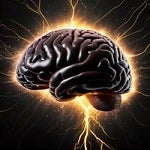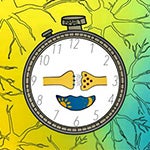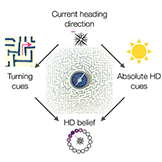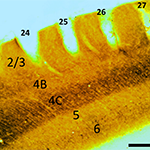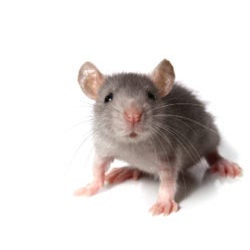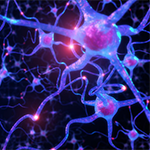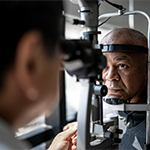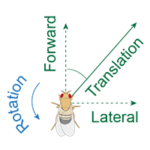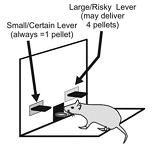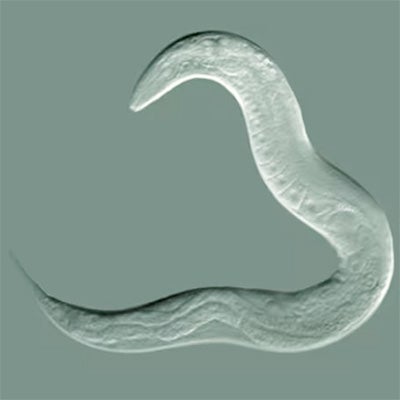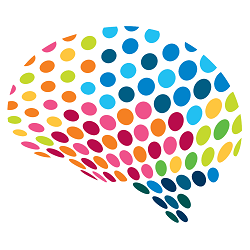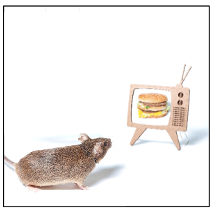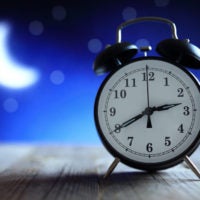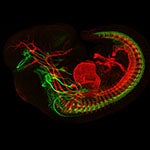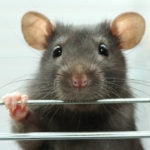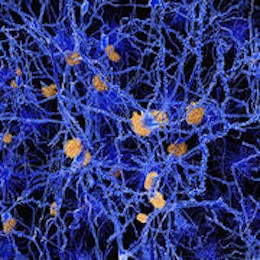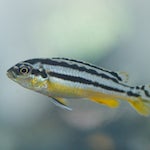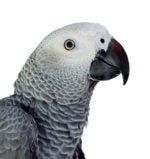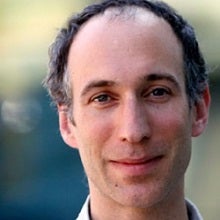Neuro Topics - Learning & memory
SEARCH OTHER RESEARCH AREAS
March 22, 2024
The mind can wander and uncouple from the present experience of the body, but how does it snap back into the present? Jordan Farrell shares new research that points towards a brain circuit phenomenon that may explain this shift.
Original article in: Nature >
October 26, 2023
The time of day influences cognition, but the molecular and synaptic mechanisms of this influence are elusive. We show that the circadian clock protein BMAL1 has a rhythm in synapses that is critical for corresponding rhythms in synaptic plasticity. Our findings point to local mechanisms for gating computations in anticipation of the time of day.
Original article in: Science Advances >
August 30, 2023
HMS News article on new research from Chris Harvey, Mike Greenberg, and colleagues, first author Jonathan Green. They identified a specific group of neurons in a brain region involved in navigation that undergo bursts of activity when mice running a maze veer off course and correct their error.
Original article in: Nature >
July 21, 2023
Harvard Gazette article on new research from Sam Gershman and colleagues, first author Momchil Tomov, using fMRI and video games to test ideas about complex decision-making.
Original article in: Neuron >
June 16, 2023
Harvard Gazette Q+A with JoAnn Manson, who along with Howard Sesso, co-led a collaboration between BWH and HSPH called the the COSMOS-Web Study. This study showed that among 3,500 subjects 60 and older, a daily multivitamin led to 3.1 years less cognitive aging than for those assigned a placebo. This clinical study was the second cognition trial in COSMOS to suggest that multivitamins can slow memory loss.
Original article in: American Journal of Clinical Nutrition >
June 16, 2023
Uncertainty is a feature, rather than a flaw, and it can help us weigh internal beliefs against external sensory evidence. In this study, Anna Kutschireiter and colleagues in the Drugowitsch lab investigated how ring attractor networks, popular models for working memory, can represent and compute with uncertainties.
Original article in: PNAS >
June 7, 2023
Rick Born shares new research where neural recordings in animals trained on perceptual tasks failed to reveal the “usual suspects” of task-related signals in early visual cortex. This surprising negative finding has forced us to re-think exactly what these signals mean.
Original article in: Journal of Neurophysiology >
May 11, 2023
Harvard MCB Department news article on new research from Venkatesh Murthy and colleagues, co-first authors Alice Berners-Lee and Elizabeth Shtrahman, examining how odor mixtures are represented in the piriform cortex of mice while they learn to discriminate a unique target odor mixture from hundreds of other odor mixtures. They found that with time the target mixture becomes over-represented--meaning more neurons of this brain region become selective for the target odor mixture than they were at
Original article in: PLOS Biology >
February 24, 2023
Harvard Gazette article on new research from Jeremy Wolfe and colleagues, showing that while people often think their memory is terrible, they can recall where and when an object appeared with good, if not perfect, precision for a large number of objects.
Original article in: Current Biology >
September 29, 2022
Harvard MCB News article on new research from Nao Uchida, Mitsuko Watabe-Uchida, and colleagues, first author Korleki Akiti, second author Iku Tsutsui-Kimura, identifying a neural circuit that plays a key role in deciding whether the animals engage with or avoid novel stimuli.
Original article in: Neuron >
September 20, 2022
HMS News article on new research from the labs of Christopher Harvey and Michael Greenberg, first author Noah Pettit, and second author Lynn Yap, finding that a gene called Fos is a key player in spatial mapping. It helps the brain use specialized navigation cells to form and maintain stable representations of the environment.
Original article in: Nature >
June 30, 2022
Harvard Gazette article on new research from Sydney Cash, Leigh R. Hochberg, and colleagues, first author Daniel B. Rubin, may help explain how humans form memories and learn, and could eventually aid the development of assistive tools for people affected by neurologic disease or injury.
Original article in: Journal of Neuroscience >
May 4, 2022
Harvard Gazette article on new research from Yun Zhang and colleagues, co-first authors He Liu and Taihong Wu, showing that forgetting generates a novel brain state that is different from the one before learning happened or the one that exists after a memory is formed.
Original article in: Science Advances >
April 21, 2022
Harvard Health Publishing article discussing recent research suggesting that cataract surgery may protect against dementia.
Original article in: Science Advances >
April 21, 2022
Round-up of awards and honors earned by the HBI community.
Original article in: Science Advances >
March 9, 2022
Jenny Lu and colleagues in Rachel Wilson’s lab share new work on a neural circuit in the fly that transforms velocity from body-centric to world-centric reference frames. This work reveals how vector computations can be performed in the brain.
Original article in: Science Advances >
December 7, 2021
Aleena Garner, a new faculty member in the Department of Neurobiology at HMS, describes her latest research, together with Georg Keller of the Friedrich Miescher Institute for Biomedical Research, on how neural circuits between auditory and visual cortex communicate learned associations and create predictions. They show that experience with an audio-visual stimulus reshapes direct input from auditory cortex to visual cortex—suppressing predictable visual input to amplify the unpredictable.
Original article in: Nature Neuroscience >
August 24, 2021
John Mikhael and Sam Gershman argue that dopamine gates the influence of contextual information when making decisions. They show that this view captures dopamine’s seemingly conflicting roles in impulsivity, risk preferences, and the exploration-exploitation trade-off.
Original article in: Neuropsychopharmacology >
August 10, 2020
Myung-Gyu Choi and Yun Zhang share new research on C. elegans providing the first set of findings that demonstrate the causal role of gap junction plasticity in regulating learning in behavior.
Original article in: Nature Communications >
June 11, 2020
Prof. Venki Murthy will assume the directorship of the Center for Brain Science at Harvard on July 1st. We are pleased to announce that he will accordingly assume the position of co-director for HBI at that time.
Original article in: Nature Communications >
June 11, 2020
New research from Arthur Sugden and colleagues in the lab of Mark Andermann examines how the brain changes during learning in mice—specifically, how the cortex replays neural activity patterns linked to
recent sensory experiences.
Original article in: Nature >
May 26, 2020
The MGH Multicultural Alzheimer's Prevention Program (MAPP) recently launched a research study to examine the impact of COVID19 on the well-being, memory and cognition of ethnically diverse older individuals.
Original article in: Nature >
April 22, 2020
MCB news article on new research from the lab of Venkatesh Murthy on recent developments in reinforcement learning in mice.
Original article in: Journal of Neuroscience >
April 16, 2020
Harvard Gazette article where the Chan School’s Karestan Koenen discusses rising mental health concerns in the coronavirus era.
Original article in: Journal of Neuroscience >
April 16, 2020
Harvard Gazette article summarizing a recent Chan School forum led by Donn Posner, who says problem is becoming more common, and offers tips for falling and staying asleep.
Original article in: Journal of Neuroscience >
December 19, 2019
Are you an artist in your spare time? Do you draw, paint, sculpt or make crafts? HBI will collaborate with the Longwood Chorus on an Art & Music event in 2020! The program will feature singing, visual arts and short talks.
Original article in: Journal of Neuroscience >
December 19, 2019
The Daniel D. Federman Staff Award was established in 2014 to recognize staff for exceptional institutional engagement and service in supporting the missions of Harvard Medical School and Harvard School of Dental Medicine.
Original article in: Journal of Neuroscience >
December 19, 2019
The Jacobs Foundation Research Fellowship Program is a globally competitive fellowship program for early and mid-career researchers from all scholarly disciplines working on child and youth development.
Original article in: Journal of Neuroscience >
December 19, 2019
HMS News article on new research from the labs of Joseph DeGutis and colleagues, first author Maruti V. Mishra, suggesting a country’s degree of gender equality can affect men’s ability to recognize famous female faces.
Original article in: Scientific Reports >
December 16, 2019
Congratulations to Isle Bastille (Goodrich lab), Jaeeon Lee (Sabatini lab), Isabel D’Alessandro (Wilson lab), Jess Bell and Mary Whitman (Engle Lab), Ellen DeGennaro (Walsh lab), and Joseph Zak (Murthy lab).
Original article in: Scientific Reports >
November 7, 2019
Harvard Gazette article on new research from the lab of Bence Ölveczky, first author Ashesh Dhawale, on how the brain uses performance to regulate variability in motor functions.
Original article in: Current Biology >
September 12, 2019
Harvard Gazette profile on Samuel Mehr, director of Online Music Lab which studies questions of melody and harmony.
Original article in: Current Biology >
September 3, 2019
Harvard Gazette article on new research from the lab of Erin Hecht finding that that different breeds have different brain organizations owing to human cultivation of specific traits.
Original article in: Journal of Neuroscience >
August 22, 2019
New research from Jennifer Gatchel and colleagues, suggesting depression symptoms and Alzheimer's disease pathology could be warning signs for cognitive decline in older adults.
Original article in: Journal of Neuroscience >
July 29, 2019
Study using brain imaging suggests why zebrafish facing a threat surprisingly opt to keep mating rather than flee.
Original article in: Current Biology >
February 28, 2019
The Fellowship encourages the nation's most promising young scientists to pursue careers in cancer research by providing them with independent funding ($231,000 total) to work on innovative projects.
Original article in: Current Biology >
February 28, 2019
Harvard Gazette article on recent work from Irene Pepperberg, Susan Carey, and colleagues, revealing the cognitive abilities of African grey parrots.
Original article in: Behaviour >
February 26, 2019
These two-year fellowships are awarded yearly to 126 researchers in recognition of distinguished performance and a unique potential to make substantial contributions to their field.
Original article in: Behaviour >
February 22, 2019
Reich, along with colleague Svante Pääbo, honored for their studies of ancient human DNA.
Original article in: Behaviour >

